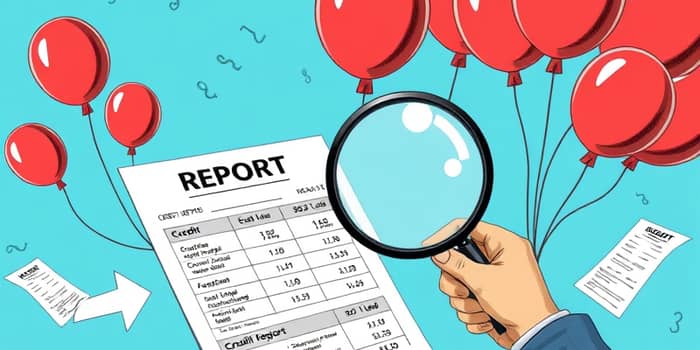
In today’s fast-paced financial world, an overlooked mistake on your credit report can cost tens of thousands of dollars over a lifetime. With nearly half of all consumers discovering errors and a significant portion reporting serious inaccuracies, the stakes have never been higher. By actively monitoring your credit file, you can protect your financial health and unlock better loan offers, insurance rates, and employment opportunities.
Regularly reviewing your credit report is not just a precaution—it’s a powerful tool to maintain control over your finances. Under the Fair Credit Reporting Act, you are entitled to annual free credit reports from Equifax, Experian, and TransUnion. Yet only one in five consumers takes advantage of this right, leaving millions unaware of potential errors.
Unchecked mistakes can silently inflate your debt-to-income ratio, trigger unwarranted delinquencies, and keep negative marks on your record long past their statute of limitations. By staying vigilant, you ensure that your true financial picture is accurately reflected to creditors, insurers, landlords, and employers.
Errors come in many forms, each with the potential to significantly raise your reported debt:
These mistakes are far from rare. According to a Consumer Reports study, 27% of consumers encountered serious errors capable of damaging credit opportunities, while the FTC estimates that 10 million Americans pay more than necessary due to such inaccuracies.
The impact of inflated balances extends beyond your credit score. A single misreported delinquency can drop you into a higher interest-rate bracket, increasing mortgage costs by tens of thousands over 30 years. Even auto loans and credit cards become more expensive, costing you hundreds or thousands of dollars in extra interest.
Beyond interest, a lower score often translates to higher insurance premiums and potential rejections on rental applications or job offers. The emotional toll—stress, anxiety, and lost opportunities—can be profound, undermining your confidence and financial stability.
Taking charge of your credit begins with a systematic review process. Follow these steps every 12 months from each bureau:
Breaking the review into focused sections helps you catch even the subtlest inconsistencies. Allocate time for each bureau to ensure no stone is left unturned.
The Fair Credit Reporting Act mandates that credit bureaus investigate disputes within 30 days. To maximize your success:
Once an error is verified, the bureau must correct or delete the inaccurate information. If they fail, you can add a personal statement to your file explaining the dispute’s status, safeguarding your reputation when future reviewers access your report.
Most discrepancies can be resolved through your own diligence. However, if you encounter:
Consider consulting a credit attorney or nonprofit credit counselor. Under FCRA, you may be entitled to damages if a bureau or furnisher negligently or willfully violated your rights. Expert guidance can expedite resolution and provide legal avenues for compensation.
Monitoring your credit report is an act of empowerment. By routinely checking for inflated balances and duplicates, you guard against unwanted interest hikes, protect your insurance rates, and maintain access to critical financial opportunities. Armed with knowledge of your rights and a clear action plan, you transform a complex system into a source of strength.
Don’t wait for a denial letter or a surprise rate increase to spur you into action. Schedule monthly reminders, set aside focused review time, and treat your credit report as a living document—one that evolves with your financial journey. Your future self will thank you for the diligence you invest today.
References













